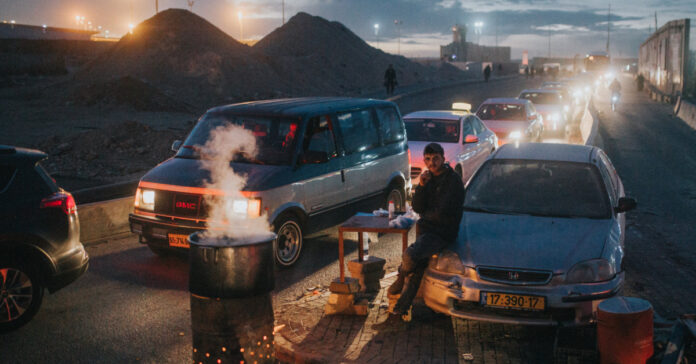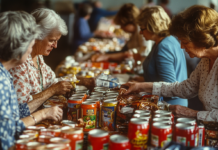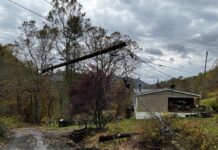Last week, Selco wrote an article on The Organic Prepper about what to do with people you know who unexpectedly show up at your house after the SHTF. These are often acquaintances who never did a thing to prep, but joked they were coming to your place. Or, they may be family members who criticized your prepping at every family gathering, but now they think you are obligated to save them.
I have read Selco’s stuff for years and respect his first-hand experience. I recommend his writings and you may also want to look into his courses, which have a good reputation. My thanks to him for writing on this topic and inspiring this post.
Create Distance
I’m going to recommend a tactic to avoid unwelcome guests Selco did not directly address: Have someone else stop them before they get to your place. There is no need to have a face-to-face confrontation with someone who is a weak link and who will be more of a drain on resources than an asset.
You may find it hard to turn away Bob, who you used to work with, along with his ditsy wife and their two hungry kids, but to the guy who lives three blocks down and is manning the roadblock, they are nobody. He doesn’t know them, so he won’t feel especially guilty about turning them away. You don’t have to feel guilty and may not even know about it.
Don’t consider this a cop out. It is the same tactic we want to use for anyone who tries to approach your area, whether they are an acquaintance, a random stranger looking for a place to bug out, or a predator who wants to kill you and steal your preps. The further you can stop them from your property, the less likely your house and your people are to be damaged.
This is why we make the home the last line of defense, not the first. We want to discourage or dissuade people from approaching with passive means. Then we want to step up to active means. The next step is a kinetic response. You want several concentric layers of fall-back positions from which to engage an aggressor to prevent them from reaching the heart of your retreat. Can a superior force defeat you? Yes, eventually, but the idea is to make it so expensive they look for an easier target.
This Takes Community and Cooperation
For this to work, you and your neighbors have to control access to your community, whether it is a neighborhood, development, town or stretch of road. This generally requires a checkpoint or roadblock (or two) and armed guards who are willing and able to turn people away or to engage them if they try to run the roadblock. They need to have some training, rules of engagement, and there should be a quick reaction team ready to reinforce them if several vehicles show up and overrun the roadblock.
The purpose of the roadblock is to stop people from driving in without permission and to be a delaying tactic to allow time for a response if a large force attacks. The people staffing the roadblock should identify who is in the vehicle and what they want. If it’s a local resident returning home, they go right in. Should they be on the list of expected friends and family who might show up, they are also granted access. If they are not on the list, too bad, so sad, you’ll have to turn around and try somewhere else.
Good spots for a roadblock are chokepoints where buildings or terrain prevent people from driving around the roadblock. If you live in a development, it may be the development entrance with a fall-back on your street. For us, it’s a one-lane bridge at the base of the mountain. Better yet, maybe they can be stopped closer to town, where a hillside with a steep bank on one side and a drop-off on the other will prevent anyone from going around the roadblock.
The head of the roadblock crew should have some discretion. For example, if someone shows up and says, “Hey I’m Joe’s cousin. He isn’t expecting us, but I am an MD, my wife is an RN and we have a trunk full of antibiotics.” You probably don’t want to turn them away without at least alerting Joe and exploring options.
Official Roadblocks
If you live in a small town and the local police or sheriff department take part in or even set up the checkpoint(s), it gives the roadblock official status. Someone who might argue with a random dude who parked his tractor in the road may be less likely to do so when there’s a law enforcement car with flashlight lights blocking his way.
If your community does set up a checkpoint or roadblock, you may need to man it a few shifts a week. That’s OK. It will give you a chance to prove you are a reliable, trustworthy person who can be counted on to be cool in a stressful situation. You will also meet neighbors you didn’t know, build relationships and make notes of people who are reliable and those that prove to be idiots. That could be useful information down the road.
My hope is when with a big catastrophe in which people flee the cities, our Sheriff will set up checkpoints on the three or four main highways into the county. A checkpoint can become a roadblock if too many uninvited guests show up. Failing that, you need to rely on your community to set up their own roadblock. Start building those contacts and relationships now, if you have not done so.








